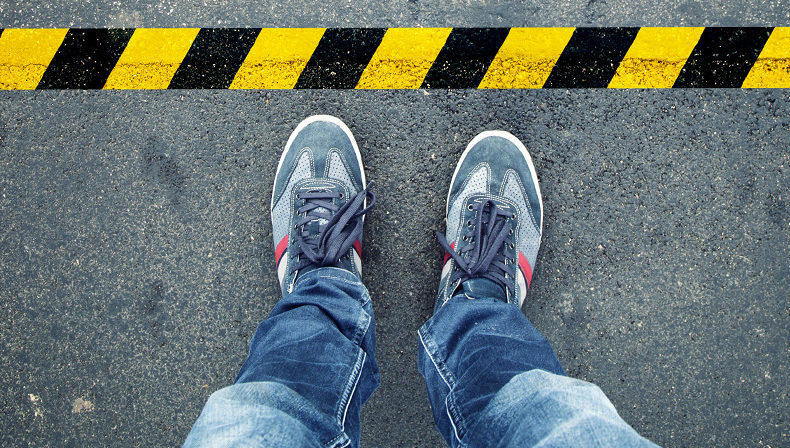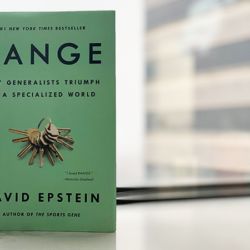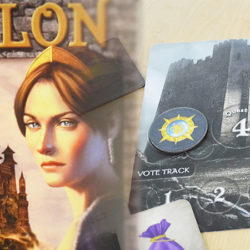
Traders and decision makers acquire many of their skills through experience. When I read articles on improving decision-making, it sometimes feels like the answers I get, even from experts in the field, are vague and not easily applied to daily life. Below I give actionable advice you can use to improve your decision-making process.
I encourage people who are looking to improve their performance to be curious and pay attention because gathering more external information helps to make better decisions. Just as important is the ability to pay attention to your own thought process. Are there specific thought processes or habit loops you can identify that preceded situations where you’ve made mistakes? If you can identify these areas ahead of time, you can prepare better responses the next time they come up. The idea is to set “mental tripwires” in advance that get triggered in situations where your default reaction performs poorly. When I trigger one of these “tripwires,” I know it is time to take a step back and reevaluate the situation.
“I am > 95% confident [insert belief here] is true”
In hindsight, the reason I often have a high level of confidence and am later proved wrong comes from not being aware of the existence of counterarguments against my position. If just being told that an argument against my position exists significantly changes my beliefs, then my original confidence level had to be too high. I do have beliefs I am > 95% confident in, but I got to that point after a process of discovering and considering the counter-arguments against my position.
“It’s not a big deal if I skip this task or habit today”
I’m a believer that good habit loops make life easier to manage. When trying to start a new habit, I’ll often hear the voice in my head telling me it is ok if I skip the habit today, just this once. The issue with this is that if I skip today, I am really making the decision to skip future days as well, because my future self is unlikely to have a different amount of willpower than I have today. I am making a decision today that pushes my future self into making the right decision the next time this situation comes up.
“Rush through this so you can get to [insert activity you enjoy here]”
When doing a task I don’t particularly enjoy, I sometimes hear a voice in my head that tells me it’s ok if I do a subpar job. In these moments, it helps me to remember the popular phrase “slow is fast.”
I recently put together several pieces of furniture. My gut instinct was to jump in with step one without reading what’s coming next. Did I really want to check that I’m starting with piece #7 rather than the similar looking piece #18? One experience of having to start over from the beginning when I thought I was almost done was enough to make me realize that those few extra minutes of organization and sanity checking at the beginning can save a lot of time at the end.
“It’ll probably be fine”
This thought comes up where the modal outcome is both likely and positive. I’ve noticed situations in the past where I haven’t given enough thought to the magnitude of low probability negative outcomes.
It’s easy to accumulate a lot of “evidence” that something is a good decision without ever experiencing a bad outcome. Many people make this mistake every day. A good example is speeding. Most of the time, people get to where they’re going a few minutes faster and nothing bad happens. When they get into an accident it may be too late to use that event as feedback to change their behavior going forward. Think of all the times someone has said “I did that every day and things turned out fine for me. What’s the problem?”
“They must be doing that because they’re irrational or uninformed”
Another example from poker is: “I don’t need to figure out the reason why they are making that bet at the poker table because they’re just a bad player.” The problem with attributing stupidity as the reasoning behind someone else’s actions is that it kills curiosity. If I start with this premise, I won’t search for more information and will discount information that suggests otherwise.
“I’m going to look really smart after this one”
I’m sure you’ve seen a video of a runner who, thinking they just won a foot race, throws up their arms and slows down just enough for a competitor to break the ribbon ahead of them. In my work, I’ve found this can happen when I’ve just had a small win–I figured out something tricky–and pre-emptively celebrate my success. The mistake I’ve made has been to bask in the good feeling of success without zooming out and asking if there are other things I haven’t considered yet.
In situations of imperfect information, I believe the right mental state is to be mildly suspicious. Those good feelings you get from having figured something out can overpower the small signal you’re receiving from the other side of the board/table/market that something isn’t right.




Subscribe Now
Get each new post sent straight to your inbox